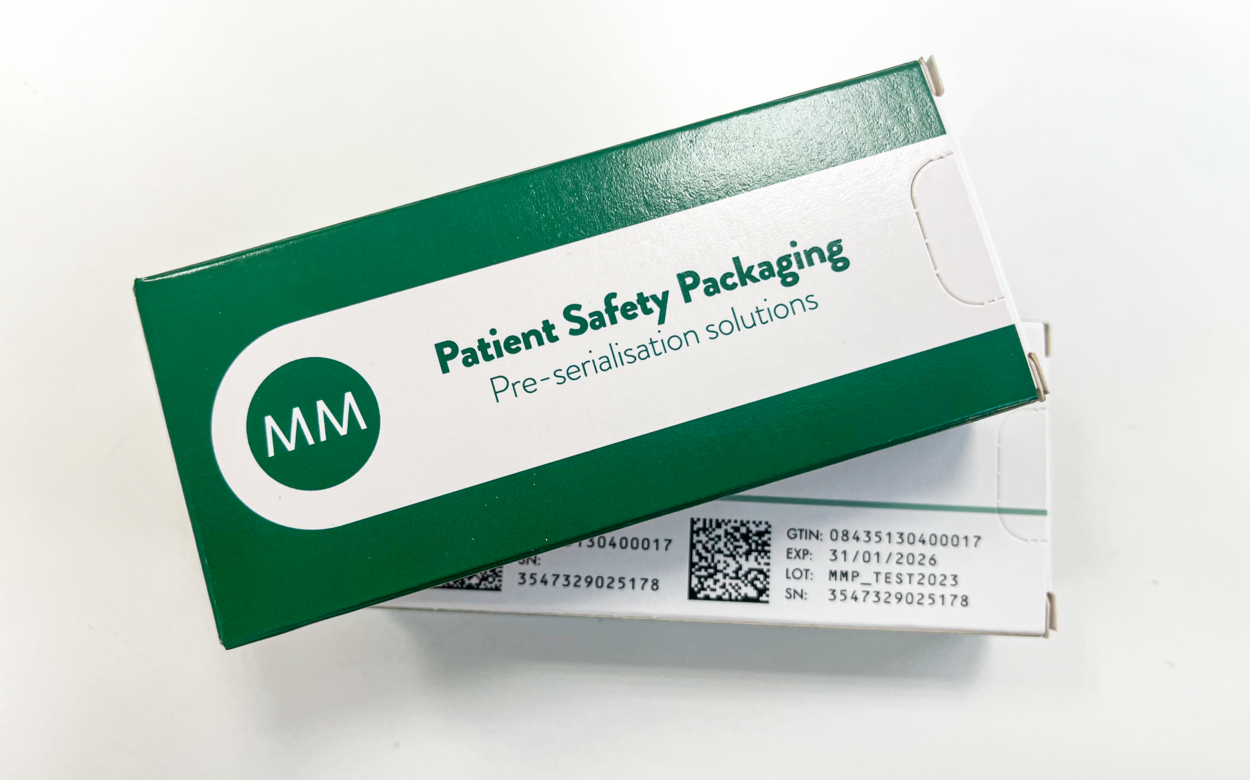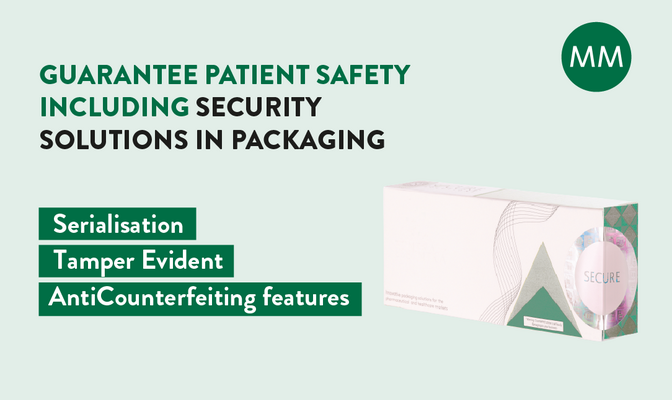Can packaging serialisation be as simple as 1,2,3?
08.02.2023
Traceability, safety, and security are crucial factors in designing packaging for businesses in the pharmaceutical and healthcare sectors. The challenge of medical counterfeiting is significant – the World Health Organisation (WHO) estimates that in certain areas around the globe, up to 1 in 10 medicines sold are counterfeit or falsified.
In response, at MM Packaging we offer a comprehensive range of anti-counterfeit and coding solutions, including packaging serialisation.
What is packaging serialisation?
Packaging serialisation is the process of assigning a uniquely identifiable printed code to the packaging of a pharmaceutical product or drug. This provides each individual unit with a data set that is measurable and traceable, as well as acting as an effective anti-counterfeit measure.
The drive towards serialisation is clear – historically, only batch number and expiry data were required for printing on pharmaceutical packaging. However, as counterfeit and falsified medicines began to impact the industry and jeopardise public health, serialisation evolved into a more protective element. Variable data is now the established standard, but can create significant supply chain challenges for businesses that are not equipped to handle the logistics of coding and managing data.
Today, the serialisation of packaging is usually mandated by government regulations, with the specific fields of data or structure varying between countries but for the most part, remaining similar. In Europe, for example, standard coding structures include the 1D GTIN EAT code and 2D Matrix code formats.
What are the benefits of serialisation to the pharma industry?
With unique coding, each unit of pharmaceutical product manufactured becomes an identifiable entity that can be independently traced and authenticated. On a base level, it turns a product into a unit of usable and manageable data.
Serialisation can provide information such as product origin and manufacturing journey, batch reference, expiry date, conditions of use and more. Using serial numbers to give each unit an identifier means that all this information can be traced, stored, monitored and optimised.
It also means that should any safety recalls be required, batches can be traced and located quickly to minimise risk to public health.
Making serialisation simple
With serialisation becoming such an important part of pharmaceutical packaging projects, it takes a dedicated partner with expertise and a track record in quality.
Handling projects from concept to completion, MM Packaging makes serialisation simple. Our team, combining a wealth of experience to the process, brings agility, precision and cost control to the table.
Proving the ideal partner to the pharma sector, our serialisation solutions complement existing processes and remove much of the complexity involved in producing pre-serialised pharmaceutical cartons or serialised labels. Alongside standard code formats, MM Packaging can also support with bespoke solutions, such as those required on remote clinical trial packaging.
As part of our commitment to outstanding quality no matter complexity or length of print run, codes are verified for machine and human readability, and validated through various software platforms.
To find out more about the benefits of working with the experienced MM Packaging team, please contact Pharmahc-Packaging@mm.group.



